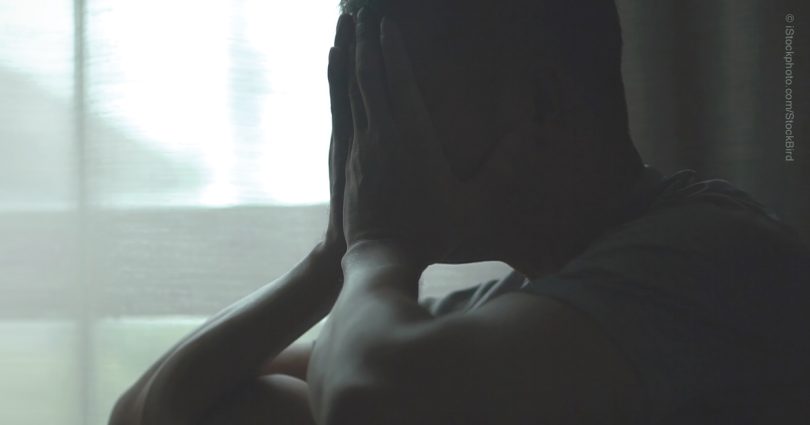Dysphoria is a state of unhappiness, uneasiness, or dissatisfaction. The current state of the nation suggests that in matters of morality, the citizens of the United States are suffering from a debilitating state of moral dysphoria.
Americans are now living with a president—allegedly Catholic—who is working to make contraception more widely available and abortion permissible for any reason. In other words, he is a Catholic-in-name-only who supports all manner of sexual sin as defined by the Church in which he claims membership.
But Biden’s moral dysphoria is also suffered by countless numbers of people who seem to be confused about the first-grade lesson that there is a difference between good and bad—the bad being sin, an offense against God.
If we put that truth in the context of a recent headline, you can see where this is going.
According to a recent report, Republicans in Congress, hoping to win reelection, are scrambling to “limit electoral backlash against abortion bans.”1 One commentator even noted that politicians who stand against abortion will lose votes. So this statement begs the question, Why is killing people consistently defined as a political hot potato? Oh, that’s right. Abortion is about a human right not about a human being destined to die because of that alleged “right”!
On a related matter, which sick perspective dictates that it’s wrong for people to not agree with the transgender canon mandating multiple sexes? Do we no longer accept the biological fact that there are two genders—male and female? Or that procreation requires two people—a male and a female—who are responsible for the children they procreate?
The Mayo Clinic has addressed gender dysphoria in a way that underscores the actual answer to these questions. It states: “Gender dysphoria is the feeling of discomfort or distress that might occur in people whose gender identity differs from their sex assigned at birth or sex-related physical characteristics.”2
In case you missed it, Mayo is suggesting that God has nothing to do with creation and that the words from Genesis (“male and female He created them”) are no longer culturally relevant.
In this age of moral dysphoria, we continually witness these inane positions, now often taken by once-respected institutions, and sadly, mainstreamed by the less-than-respected media.
This is one of the many reasons why we are so grateful for the pastoral letter issued by Archbishop Paul S. Coakley of Oklahoma City, Oklahoma. His insights on gender dysphoria are significant. Here he explains the purpose of his message:
To provide pastoral guidance on how the Church, its ministers and the lay faithful can accompany—walk with—those who struggle with their gender identity, especially those who identify as transgendered. Following Pope Francis, I distinguish “between what pastoral care is for people who [identify as transgendered] and what is [trans]gender ideology.” Persons who identify as transgendered are created by God, are loved by God, and we as faithful Christians are called to love each of them as our neighbor (cf. Mark 12:31). To love others means at its heart to will and desire their good.3
This distinction should not be lost on anyone. The fundamental reason why we strive to reflect the teaching of St. Augustine to hate the sin and love the sinner is the essence of Coakley’s message. He states:
The culturally dominant transgender movement has an understanding of nature and purpose radically at odds with the Catholic understanding of the human person.
The transgender movement is rooted in a modern form of dualism where body and soul/mind/spirit are separate realities. In this view, the human person is the immaterial inhabitant of a physical host. The material body therefore can be manipulated in service to the immaterial soul/mind/spirit. Where the transgender movement sees a disconnect between the material and immaterial, Catholics see a beautiful unity.4
It is this rich teaching on the value and dignity of the human person that makes Coakley’s pastoral message so necessary and timely.
Regardless of whether we are considering the question of abortion, contraception, transgender ideology, or any other attacks on human nature as designed by God, we must be mindful of the archbishop’s words. It is no small feat to reflect the love of Christ at times like this, but it is the only way to touch a soul with truth in a way that, please God, inspires him or her to embrace truth and reject the siren song that creates moral dysphoria.
1. Nick Robins-Early, “Republicans Scramble to Limit Electoral Backlash against Abortion Bans,” The Guardian, June 24, 2023, theguardian.com/us-news/2023/jun/24/republicans-abortion-electoral-backlash-roe-v-wade.
2. “Gender Dysphoria,” Mayo Clinic, Accessed September 25, 2023, mayoclinic.org/diseases-conditions/gender-dysphoria/symptoms-causes/syc-20475255.
3. Archbishop Paul S. Coakley, “Full Text of Bishop Paul Coakley’s Pastoral Letter on Gender Dysphoria, Transgender Movement,” Catholic World Report, May 1, 2023, catholicworldreport.com/2023/05/01/full-text-of-bishop-paul-coakleys-pastoral-letter-on-gender-dysphoria-transgender-movement.
4. Ibid.


Facebook Comments